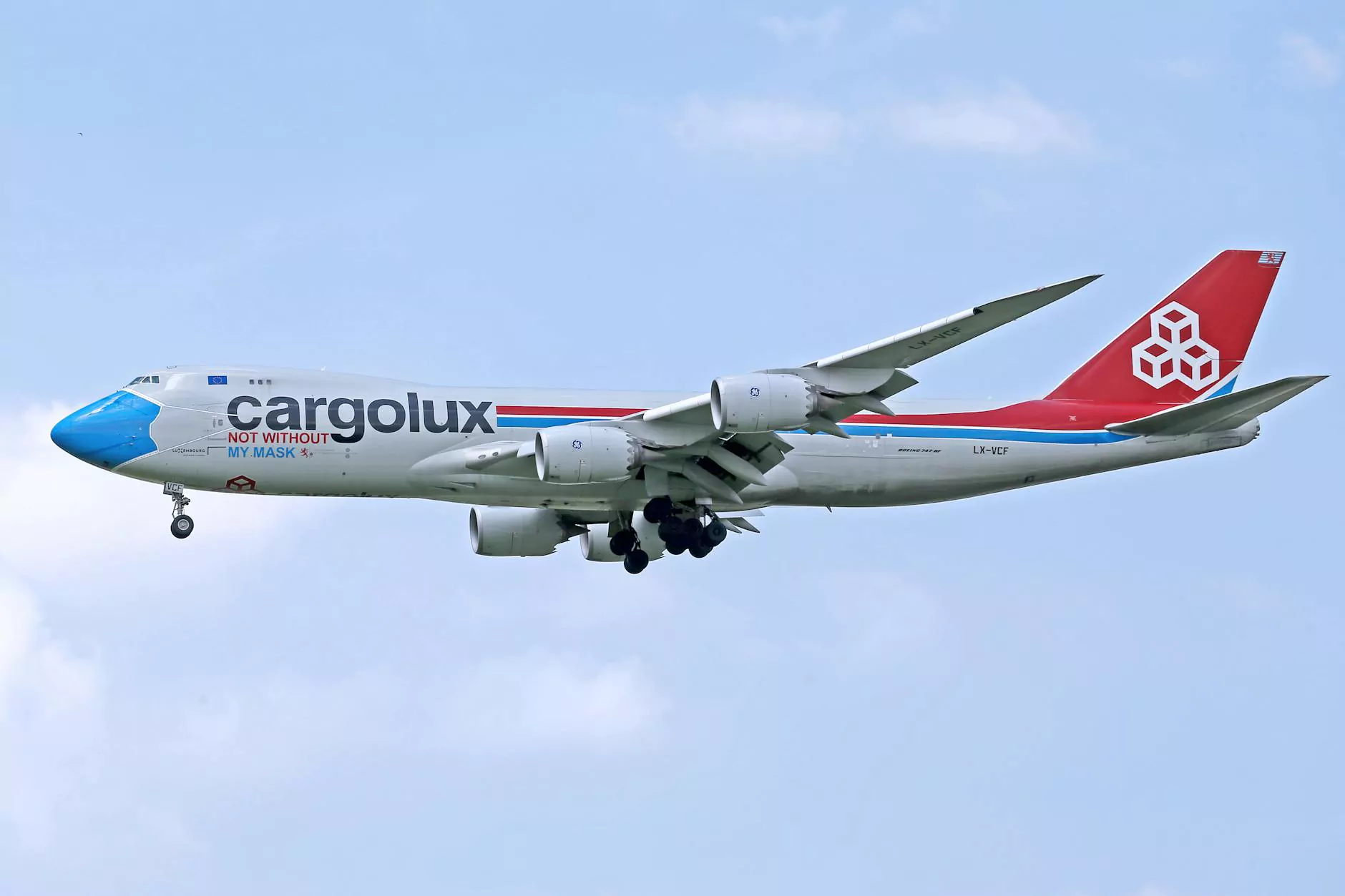Maximizing Business Efficiency Through Strategic Management of Air Freight Charges Per Kg

In the rapidly evolving world of international trade and global commerce, companies recognize the critical importance of efficient and cost-effective logistics solutions. Among these solutions, air freight stands out for its speed, reliability, and capacity to move high-value or time-sensitive goods across vast distances. Central to optimizing air freight operations is understanding the intricacies of air freight charges per kg. Proper knowledge of logistics costs directly influences profitability, competitiveness, and customer satisfaction.
Understanding the Concept of Air Freight Charges Per Kg
The term air freight charges per kg refers to the pricing model airlines and freight forwarders use to determine shipping costs based on the weight of the cargo. It is a fundamental metric in the logistics industry, serving as a basis for calculating shipping expenses for various types of goods. The rate per kilogram can vary significantly depending on numerous factors, from the route distance to the nature of the cargo, and from airline policies to current fuel prices.
The Significance of Air Freight Charges Per Kg in Business Logistics
An accurate understanding of air freight charges per kg is essential for companies aiming to optimize their supply chain costs. It allows businesses to:
- Budget effectively: Precise cost estimations enable better financial planning and prevent unexpected expenses.
- Pricing competitiveness: Knowing shipping costs helps set competitive product prices without sacrificing profit margins.
- Supply chain efficiency: Strategic decisions on shipment size and frequency can be made to reduce costs.
- Customer satisfaction: Reliable and transparent shipping costs foster trust and enhance customer experience.
Factors Influencing Air Freight Charges Per Kg
Multiple variables determine the air freight charges per kg. Recognizing these factors helps businesses choose the most cost-effective shipping options:
1. Route Distance and Destination
Longer flights on intercontinental routes typically incur higher per kg costs due to increased fuel consumption, airspace fees, and operational expenses. Additionally, remote or less-accessible airports may lead to higher handling fees, further influencing the overall charges.
2. Cargo Type and Handling Requirements
Specialized cargo, such as hazardous materials, perishable goods, or fragile items, require additional safety measures, packaging, and handling protocols. These requirements can significantly increase the air freight charges per kg.
3. Flight Frequency and Capacity
High-frequency flights and available capacity can reduce costs due to economies of scale. Conversely, irregular or backhaul flights may carry higher per kg tariffs owing to lower capacity utilization.
4. Fuel Prices and Economic Conditions
As fuel prices fluctuate, so too do operating costs for airlines. During periods of rising fuel costs, air freight charges per kg tend to increase, affecting the overall cost structure.
5. Market Competition and Supply & Demand Dynamics
In competitive markets, priced strategies may be more aggressive to attract clients, leading to lower air freight charges per kg. Conversely, high demand during peak seasons can drive prices upward.
How to Optimize Your Business Supply Chain by Managing Air Freight Charges Per Kg
Effective management and strategic planning around air freight charges per kg can provide a substantial competitive advantage. Consider the following best practices:
1. Consolidate Shipments
Combining smaller packages into larger consolidated shipments reduces the average cost per kg because airlines often provide discounts for larger, well-packed consignments. Proper inventory management can facilitate this consolidation process.
2. Optimize Shipment Size and Frequency
Finding the right balance between shipment size and frequency ensures cost-efficiency while maintaining supply chain responsiveness. Larger, less frequent shipments can leverage lower per kg rates, but must align with business needs.
3. Leverage Advanced Logistics Technology
Utilize sophisticated logistics software and tools from platforms like CargoBooking Aero to analyze shipping patterns, compare rates, and forecast costs effectively. This proactive approach can prevent overspending.
4. Select the Right Transportation Partners
Partner with reputable freight forwarders and airlines that offer transparent pricing models and flexible options for air freight charges per kg. Building strong relationships ensures priority handling and better negotiated rates.
5. Explore Alternative Routes and Airports
Sometimes, choosing different airports or routing options can lead to significant savings by accessing lower tariffs or avoiding congested hubs. A well-informed route selection process is key to managing costs.
The Role of Shipping Centers and Airports in Controlling Air Freight Charges Per Kg
Shipping centers and airports serve as vital nodes in the logistics chain, influencing costs and operational efficiencies. Here’s how they impact the air freight charges per kg:
1. Strategic Placement of Shipping Centers
Establishing or utilizing shipping centers near major transportation hubs minimizes transportation time and costs, directly reducing per kg charges. Centralized logistics hubs facilitate smoother customs clearance, warehousing, and distribution.
2. Airport Infrastructure and Handling Capabilities
Modern, well-equipped airports with advanced cargo handling facilities can expedite processing times and reduce delays, which translates into cost savings. Facilities that accommodate special cargo and provide integrated services improve efficiency and cost-effectiveness.
3. Customs and Regulatory Processes
Efficient customs procedures at airports minimize delays and storage fees, which artificially inflate shipping costs. Partnering with shipping centers that streamline regulatory processes is a key cost-saving strategy.
How CargoBooking Aero Facilitates cost-effective Air Freight Charges Per Kg
At CargoBooking Aero, we specialize in providing comprehensive freight booking solutions that empower businesses to manage air freight charges per kg efficiently. Our platform offers:
- Competitive rate comparisons: Access multiple quotes from top airlines and freight providers to find the best rates.
- Real-time rate updates: Stay informed about current market conditions affecting pricing.
- Customizable shipment options: Tailor shipments according to size, timing, and route preferences for optimal savings.
- Expert support: Our logistics experts assist in route planning and cost analysis to minimize expenses.
Future Trends Impacting Air Freight Charges Per Kg
As technology and global markets evolve, several trends will influence air freight charges per kg:
- Emergence of more sustainable aviation fuels: Potential cost reductions and environmental benefits.
- Increased digitalization: AI-driven logistics platforms will optimize route selection and pricing.
- Expansion of airport infrastructure: New, purpose-built cargo hubs will improve throughput and reduce handling costs.
- Regulatory changes: Customs and security policies will continue to evolve, impacting costs and processing times.
Conclusion: Strategic Management of Air Freight Charges Per Kg as a Business Essential
In today’s competitive global marketplace, mastering the intricacies of air freight charges per kg is indispensable for businesses that seek to optimize logistics costs and enhance customer satisfaction. Whether through shipment consolidation, strategic routing, leveraging cutting-edge platforms like CargoBooking Aero, or utilizing the facilities of advanced shipping centers and airports, companies can transform their supply chains into efficient, cost-effective operations.
Emphasizing continuous monitoring and adaptation to market conditions allows businesses to stay ahead, reduce shipping expenses, and maximize profits. Unlock the full potential of your logistics network by integrating best practices and innovative solutions to manage air freight charges per kg effectively — ensuring your enterprise remains competitive and resilient in a dynamic global economy.
air freight charges per kg








